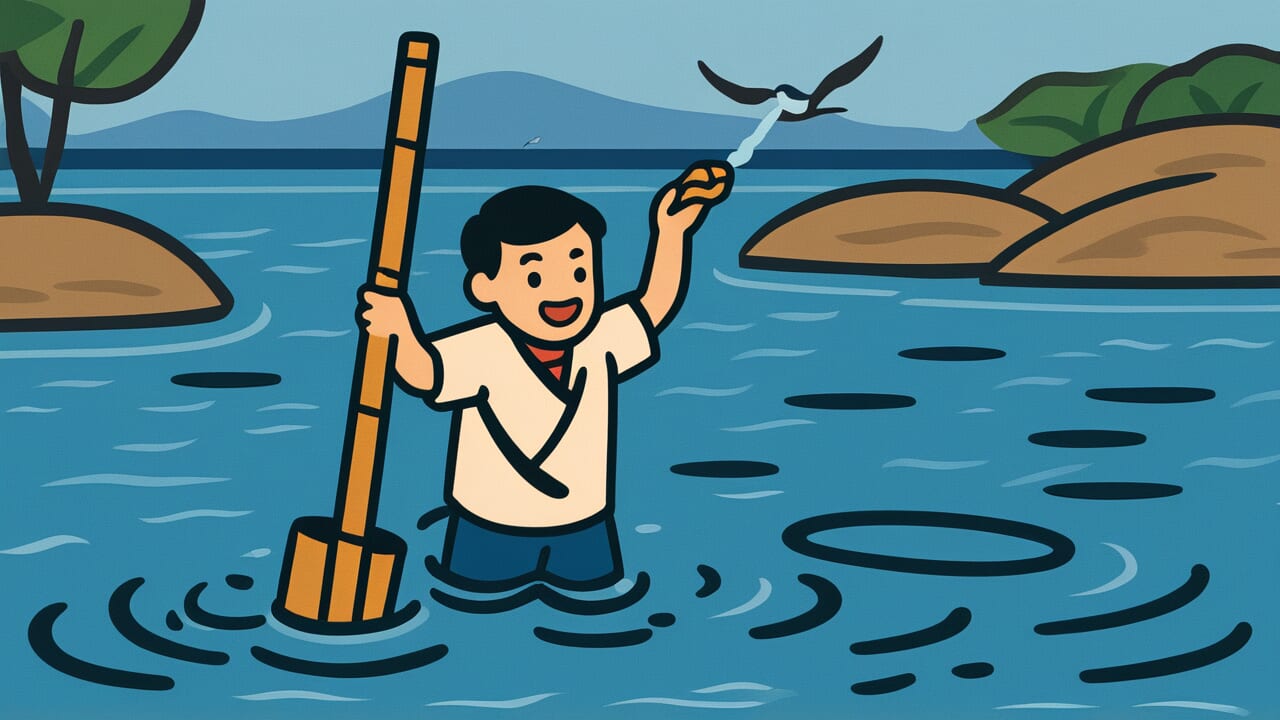Cultural Context
Tamil culture has deep respect for agricultural wisdom and water management. The region’s history is shaped by monsoon patterns and seasonal floods.
Communities learned that survival depended on careful preparation, not reactive responses.
In South India, water has always been precious yet dangerous. Farmers built elaborate irrigation systems and storage tanks before rainy seasons.
This proverb reflects centuries of learning from both droughts and devastating floods. It captures the Tamil value of foresight over panic.
Elders traditionally shared such sayings during farming seasons and family decisions. The imagery resonates across Indian communities that depend on monsoon cycles.
Parents use this wisdom when teaching children about planning and responsibility. It appears in folk songs, village discussions, and everyday advice about life choices.
Meaning of “You need to build a dam before the flood comes”
This proverb teaches that prevention requires action before crisis arrives. Building a dam during a flood is impossible and pointless. The wise prepare when times are calm, not when disaster strikes.
The message applies broadly to life preparation and risk management. A student studies throughout the semester, not just before final exams.
A family saves money during stable employment, not after job loss. A company strengthens its systems during profitable times, not during market crashes.
The proverb reminds us that preparation windows close when emergencies begin.
The wisdom emphasizes timing as much as action itself. Some people recognize risks but delay until urgency forces their hand. By then, options narrow and costs multiply dramatically.
The proverb suggests that comfort and stability are precisely when preparation matters most. Waiting for warning signs often means waiting too long to act effectively.
Origin and Etymology
It is believed this proverb emerged from Tamil agricultural communities over centuries. Monsoon floods could destroy crops, homes, and lives without proper water management.
Villages that built embankments and channels before rainy seasons survived and prospered.
Tamil literature has long celebrated practical wisdom alongside philosophical teachings. Oral traditions passed farming knowledge through memorable sayings that anyone could remember.
This proverb likely traveled through generations of farmers teaching children about seasonal preparation. It became part of broader life advice beyond just agriculture.
The saying endures because its truth appears repeatedly across human experience. Every generation rediscovers that crisis preparation cannot happen during crisis itself.
The simple image of building during calm versus chaos makes the lesson unforgettable. Modern contexts like health, finance, and relationships prove the wisdom remains relevant today.
Usage Examples
- Manager to Employee: “Start preparing the backup systems now before the server crashes – You need to build a dam before the flood comes.”
- Parent to Teenager: “Begin studying for finals today instead of waiting until the night before – You need to build a dam before the flood comes.”
Lessons for Today
Modern life offers countless examples where this ancient wisdom still applies. We know we should backup computer files before hard drives fail.
We understand insurance makes sense before accidents happen, not after. Yet acting on this knowledge requires overcoming our tendency toward present comfort.
The challenge lies in motivating action when no immediate threat exists. Someone might start an emergency fund after seeing stable paychecks continue monthly.
A business might invest in cybersecurity before experiencing any actual breaches. A person might strengthen relationships during peaceful times, not just during conflicts.
The key is recognizing that calm periods are opportunities, not guarantees.
Balance matters here though, as excessive preparation can become paralyzing anxiety. The proverb advocates reasonable foresight, not obsessive worry about every possible disaster.
Focus on likely risks and practical preparations rather than imagining endless catastrophes.



Comments